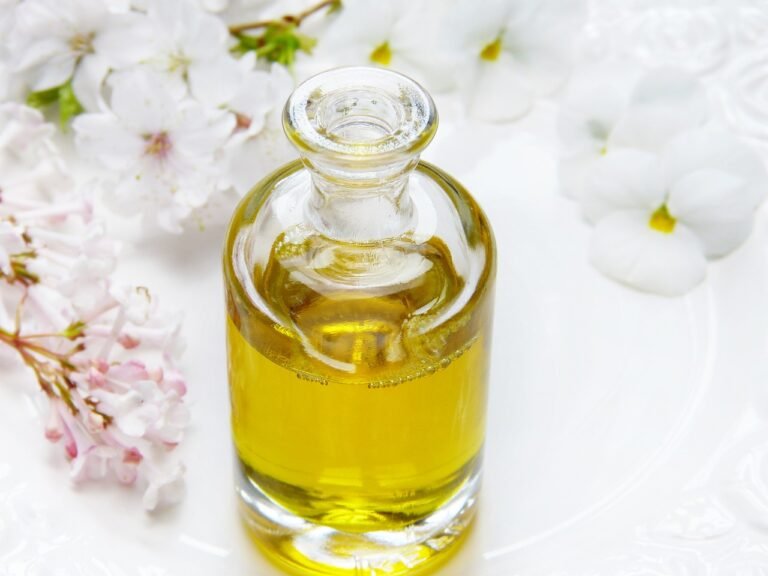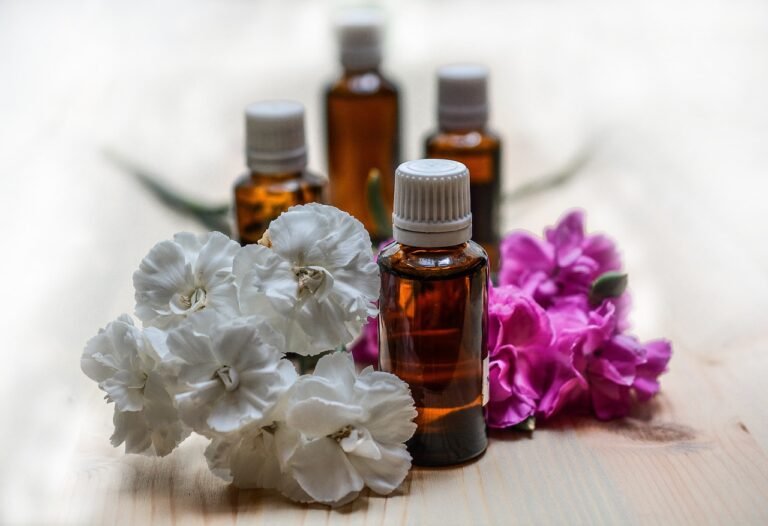Knowing the differences between fragrance and essential oils is important for anyone interested in aromatherapy, skincare, or crafting. While both types of oils are used to add scent to products, they differ significantly in their composition, production methods, and applications. Fragrance oils are often synthetic and designed to mimic natural scents, whereas essential oils are derived from plants and offer therapeutic benefits. This blog will explore the definitions, production processes, uses, and pros and cons of fragrance and essential oils, helping you make an informed choice for your needs.


Fragrance oils are synthetic or natural compounds created to produce specific scents. Unlike essential oils extracted from plants, fragrance oils are often made in laboratories. They can contain various chemical ingredients, including synthetic aroma chemicals and natural extracts. The primary goal of fragrance oils is to replicate the scent of natural substances or create entirely new fragrances not found in nature.
The production of fragrance oils involves blending various aromatic compounds to achieve a desired scent. Synthetic fragrance oils are typically created using petrochemicals, while natural fragrance oils may include essential oils and other plant-based extracts. The process allows for various scents, from floral and fruity to musky and spicy. This versatility makes fragrance oils popular in manufacturing perfumes, candles, soaps, and other scented products.
Fragrance oils are widely used in the cosmetic and home fragrance industries. They are commonly found in perfumes, lotions, candles, and air fresheners. Their ability to provide long-lasting and consistent scents makes them a preferred choice for many commercial applications.
–Pros: Fragrance oils offer various scents, are generally more affordable, and have a longer shelf life.
–Cons: They may contain synthetic chemicals that can cause allergic reactions and lack the therapeutic benefits of essential oils.

Essential oils are concentrated plant extracts from steam distillation or cold pressing. These oils capture the natural aroma and beneficial properties of the plant from which they are derived. Essential oils are composed of volatile compounds that provide both fragrance and therapeutic benefits, making them popular in aromatherapy and natural health practices.
The production of essential oils involves extracting the aromatic compounds from plants. Steam distillation is the most common method, where steam vaporizes the plant’s volatile compounds, which are then condensed back into liquid form. Cold pressing is another method primarily used for citrus oils, where the oil is mechanically pressed from the plant material. The quality of essential oils depends on the plant source and extraction method.
Essential oils are used in aromatherapy, skincare, and holistic wellness practices. They are often added to diffusers, massage oils, and natural cleaning products. Their therapeutic properties can help with relaxation, stress relief, and various health concerns.
–Pros: Essential oils are natural, offer therapeutic benefits, and are eco-friendly.
–Cons: They can be expensive, have a shorter shelf life, and their quality can vary based on the source and extraction method.
Fragrance oils are typically synthetic or blend synthetic and natural ingredients designed to mimic natural scents or create new ones. In contrast, essential oils are purely natural, extracted directly from plants. This fundamental difference in origin and composition affects their properties, uses, and benefits.
Fragrance oils generally have a stronger and longer-lasting scent compared to essential oils. This is because they are formulated to maintain their fragrance over time. Essential oils, while potent, tend to have a more subtle and natural scent that may dissipate more quickly.
Due to their natural composition, essential oils are known for their therapeutic benefits, such as stress relief and improved well-being. However, they can cause allergic reactions if not used properly. Fragrance oils, on the other hand, may contain synthetic chemicals that can irritate some individuals and lack the health benefits of essential oils.

When choosing between fragrance oils and essential oils, consider your intended use. Fragrance oils may be the better choice if you are looking for a long-lasting scent for candles or perfumes. Essential oils are more suitable for therapeutic benefits, such as stress relief or skin care. Personal preferences for natural versus synthetic products and budget constraints also play a significant role in your decision.
To ensure you are purchasing high-quality oils, always read labels carefully. Look for essential oils that are 100% pure and have been tested for quality. For fragrance oils, check for any potential allergens or irritants. Reputable suppliers often provide detailed product information, including sourcing and production methods. Experiment with small quantities to find the oils that best meet your needs and preferences.
Fragrance and essential oils have unique advantages and disadvantages. Fragrance oils offer various scents and are cost-effective, making them ideal for products where scent longevity is important. Essential oils, with their natural composition and therapeutic benefits, are perfect for those seeking holistic wellness solutions. By understanding the differences between these two types of oils, you can make an informed choice that aligns with your needs and preferences. Whether you opt for the synthetic allure of fragrance oils or the natural benefits of essential oils, both can enhance your daily life meaningfully.

If you are a supplier of the diffuser and essential oil sector or expanding into these areas, we at DIFFUSERO are ready to become your MOST VALUED PARTNER. Get in touch with us today, and let’s open up a world of opportunities for our future collaboration
info@essentialoildiffusero.com